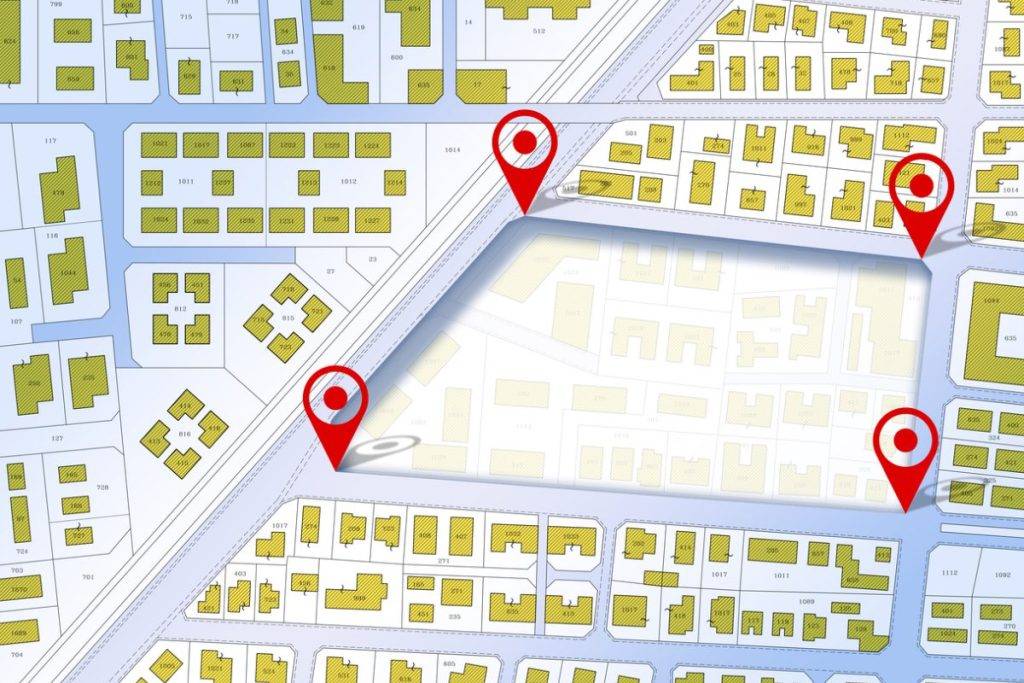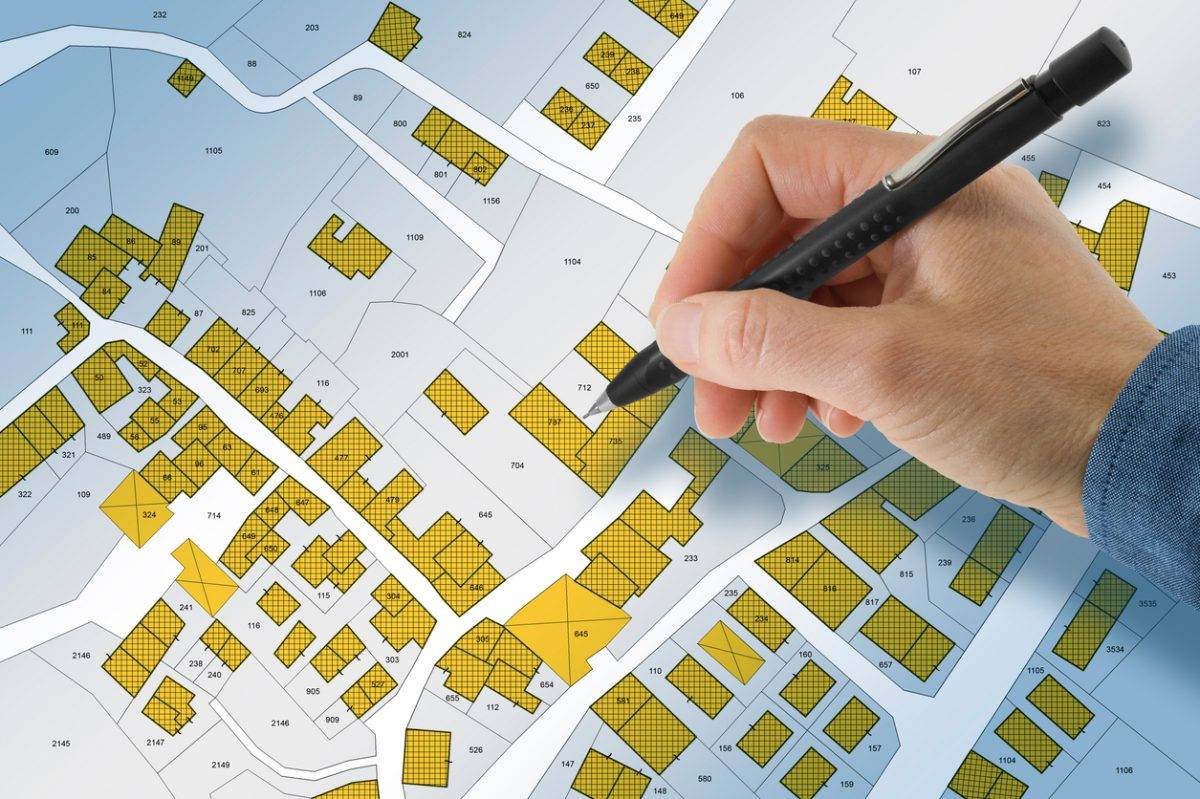What is a Cadastral Survey?
When buying, selling, or developing property in Macon, Georgia, accurate boundaries matter more than most people realize. That’s where a cadastral survey comes in. But what is a cadastral survey, and why is it so important in real estate? In simple terms, a cadastral survey is the process of precisely identifying, documenting, and mapping property boundaries. It ensures that land ownership is legally recorded, disputes are minimized, and property transactions can move forward with clarity and confidence. That said, most homebuyers in Macon can rest assured that the standard closing process, which includes a title search and title insurance, already provides the protection they need in most situations. Still, there are times when investing in a cadastral survey is a smart choice, and we’ll explore what those situations look like below.
When buying, selling, or developing property in Macon, Georgia, accurate boundaries matter more than most people realize. That’s where a cadastral survey comes in. But what is a cadastral survey, and why is it so important in real estate? In simple terms, a cadastral survey is the process of precisely identifying, documenting, and mapping property boundaries. It ensures that land ownership is legally recorded, disputes are minimized, and property transactions can move forward with clarity and confidence.
Defining a Cadastral Survey
The word cadastral comes from the term cadastre, meaning an official record of property boundaries, ownership, and value. A cadastral survey, therefore, is a specialized type of land survey that goes beyond measuring distances or mapping topography. It establishes the exact legal boundaries of a parcel of land and creates the official record used by governments, courts, property owners, and developers.
In Georgia, cadastral surveys form the foundation of property deeds, tax records, and zoning compliance. Without them, real estate markets could not function efficiently.
Do you need one when purchasing a home?
Most residential homebuyers in Macon (and beyond) can feel confident that a title search and standard title insurance provide the protection they need to close safely. This process is the industry standard and is generally all that lenders require. In many cases, especially in newer subdivisions where lots have been recently platted and boundary lines are well established, an additional survey may not be necessary. However, in certain situations, such as when buyers plan to add a pool, build an addition, install a new fence, purchase rural acreage, or take on a larger development project, a cadastral survey can be a smart investment. Taking this extra step can prevent costly boundary disputes and provide peace of mind that the property truly meets the buyer’s long-term needs.
Let’s take a closer look at the purpose of a Cadastral Survey.
The Purpose of a Cadastral Survey
At its core, a cadastral survey serves three vital purposes:
- Defining Legal Boundaries
It establishes the exact lines of a property, eliminating confusion between neighbors and ensuring that ownership is crystal clear. - Supporting Property Rights
By documenting boundaries in public records, cadastral surveys protect property owners from encroachment or disputes. - Guiding Land Use and Development
Cadastral surveys are essential in urban planning, zoning, and subdivision development. They help cities like Macon manage growth while respecting property rights.
What’s Included in a Cadastral Survey?
A cadastral survey is highly detailed and may include:
- Boundary Lines – Clearly marking the perimeter of a property.
- Corner Monuments – Physical markers (stakes, iron pins, or concrete posts) placed in the ground.
- Easements and Rights-of-Way – Documentation of areas where others may have legal use, such as utility access or shared driveways.
- Parcel Identification Numbers – References that tie property to official records.
- Legal Descriptions – Detailed written descriptions used in deeds and titles.
- Maps or Plats – Visual diagrams showing boundaries, structures, roads, and adjoining properties.
This combination of written records and physical markers ensures clarity both on paper and in the field.
How Cadastral Surveys Differ from Other Surveys
Many people confuse cadastral surveys with standard land surveys, but they serve different purposes.
- Topographic Survey – Focuses on elevation, contours, and natural features. Useful for construction and engineering.
- Mortgage Survey – A simplified survey often required by lenders to confirm property lines and improvements.
- Subdivision Survey – Splits large parcels into smaller lots for development.
- Cadastral Survey – The legal backbone of all surveys, establishing official boundaries recognized by law.
In short, while other surveys help with planning or financing, a cadastral survey carries legal authority.
Why Cadastral Surveys Matter in Macon
In a city like Macon, where historic neighborhoods meet modern growth, cadastral surveys may be important, depending on your plans for the property. Many properties were platted decades, and sometimes even centuries ago. Over time, fences shift, landmarks disappear, and property descriptions can become unclear.
Consider these common situations where cadastral surveys make a difference:
- Buying a Home – A cadastral survey ensures the property lines match the deed before closing.
- Selling Land – Clear boundaries reduce buyer hesitation and speed up transactions.
- Building a Fence or Addition – Prevents costly disputes with neighbors about encroachment.
- Subdivision Development – Essential for dividing larger tracts into smaller lots for new housing.
- Resolving Boundary Disputes – Courts rely on cadastral surveys as authoritative evidence.
In Macon-Bibb County, cadastral surveys are the gold standard for resolving uncertainty and keeping the real estate market strong.
Legal Authority and Record Keeping
One of the defining characteristics of cadastral surveys is their official status. Once completed by a licensed surveyor, they are often filed with county offices and become part of the public record.
In Georgia, cadastral surveys:
- Are used to establish the basis for property taxes.
- Support zoning enforcement and planning regulations.
- Provide evidence in title disputes or eminent domain cases.
Because of their legal importance, cadastral surveys must be performed by certified professionals who meet state requirements.
Risks of Skipping a Cadastral Survey
Some buyers and sellers try to cut corners by relying on old plats, neighbor agreements, or visible landmarks like fences. This can lead to major issues:
- Boundary Disputes – A fence may not reflect the true property line.
- Title Problems – Inaccurate descriptions can cloud ownership records.
- Construction Delays – Building without a confirmed survey can result in zoning violations or forced changes.
- Reduced Value – Properties with unclear boundaries may sell for less.
Investing in a cadastral survey upfront saves time, money, and stress down the road.
How to Get a Cadastral Survey in Macon
If you’re considering a property transaction or development project, the first step is to hire a licensed land surveyor. The surveyor will:
- Research existing deeds, plats, and county records.
- Visit the property and take precise measurements.
- Set or confirm boundary markers.
- Create a detailed plat or map.
- File the survey with the appropriate local office, such as the Bibb County Clerk of Superior Court.
For additional clarity on local regulations, the Macon-Bibb County Planning & Zoning Commission can provide guidance. They maintain vital records and ensure surveys align with zoning requirements.
Final Thoughts
So, what is a cadastral survey? It’s the foundation of property ownership—a precise legal tool that protects rights, clarifies boundaries, and supports development. In Macon, where historic charm blends with modern growth, cadastral surveys help maintain order and fairness in the real estate market.
Whether you’re purchasing your first home, investing in land, or planning new construction, a cadastral survey ensures you know exactly what you own and where your rights begin and end. However, as mentioned above, most residential buyers can feel confident that the standard closing process, built on a title search and standard title insurance, provides the protection they need to close safely.
If you’re ready to buy or sell property in Macon—or simply want clarity on your land boundaries—I’d love to help guide you through the process. With the right information and local expertise, you can move forward with confidence and peace of mind.



